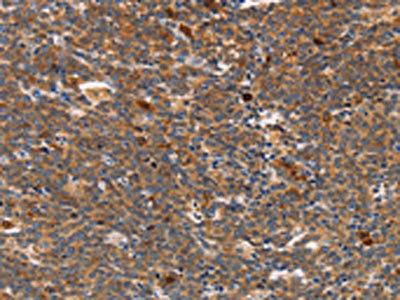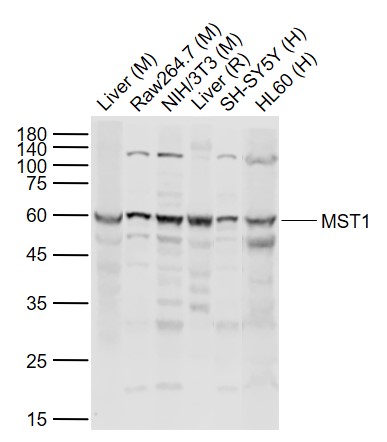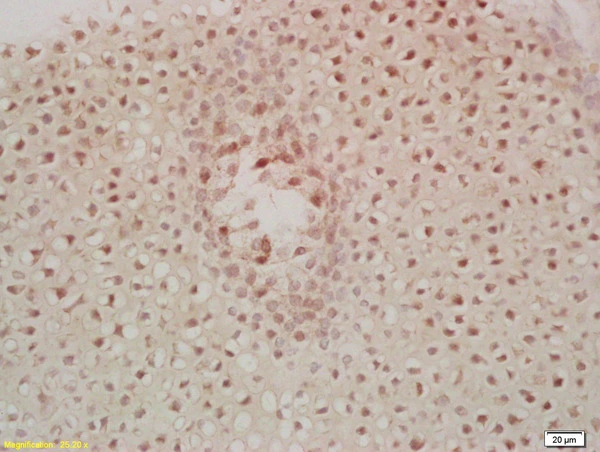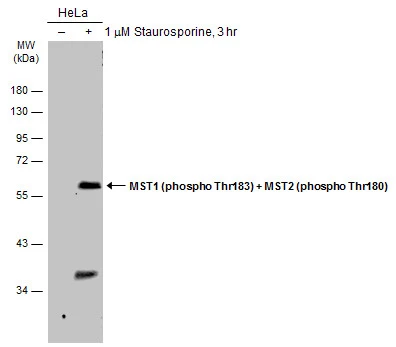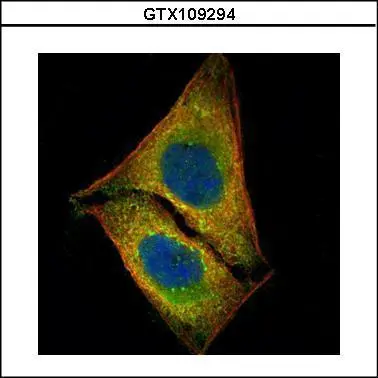
Confocal immunofluorescence analysis (Olympus FV10i) of paraformaldehyde-fixed U2OS, using STK4(GTX109294) antibody (Green) at 1:500 dilution. Alpha-tubulin filaments were labeled with GTX11304 (Red) at 1:2000.
MST1 antibody
GTX109294
ApplicationsImmunoFluorescence, ImmunoPrecipitation, Western Blot, ImmunoCytoChemistry, ImmunoHistoChemistry, ImmunoHistoChemistry Paraffin
Product group Antibodies
ReactivityHuman
TargetSTK4
Overview
- SupplierGeneTex
- Product NameMST1 antibody
- Delivery Days Customer9
- Application Supplier NoteWB: 1:500-1:3000. ICC/IF: 1:100-1:1000. IHC-P: 1:100-1:1000. IP: 1:100-1:500. *Optimal dilutions/concentrations should be determined by the researcher.Not tested in other applications.
- ApplicationsImmunoFluorescence, ImmunoPrecipitation, Western Blot, ImmunoCytoChemistry, ImmunoHistoChemistry, ImmunoHistoChemistry Paraffin
- CertificationResearch Use Only
- ClonalityPolyclonal
- Concentration1 mg/ml
- ConjugateUnconjugated
- Gene ID6789
- Target nameSTK4
- Target descriptionserine/threonine kinase 4
- Target synonymsKRS2, MST1, YSK3, serine/threonine-protein kinase 4, STE20-like kinase MST1, hippo homolog, kinase responsive to stress 2, mammalian STE20-like protein kinase 1, mammalian sterile 20-like 1, serine/threonine-protein kinase Krs-2
- HostRabbit
- IsotypeIgG
- Protein IDQ13043
- Protein NameSerine/threonine-protein kinase 4
- Scientific DescriptionThe protein encoded by this gene is a cytoplasmic kinase that is structurally similar to the yeast Ste20p kinase, which acts upstream of the stress-induced mitogen-activated protein kinase cascade. The encoded protein can phosphorylate myelin basic protein and undergoes autophosphorylation. A caspase-cleaved fragment of the encoded protein has been shown to be capable of phosphorylating histone H2B. The particular phosphorylation catalyzed by this protein has been correlated with apoptosis, and its possible that this protein induces the chromatin condensation observed in this process. [provided by RefSeq]
- ReactivityHuman
- Storage Instruction-20°C or -80°C,2°C to 8°C
- UNSPSC41116161

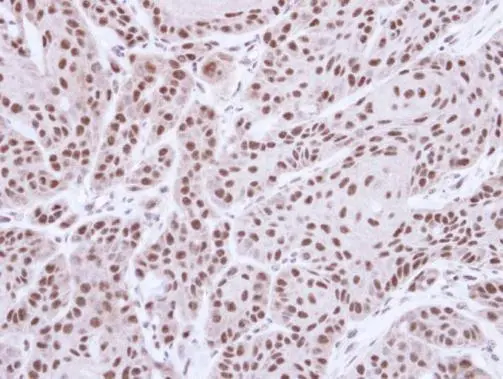
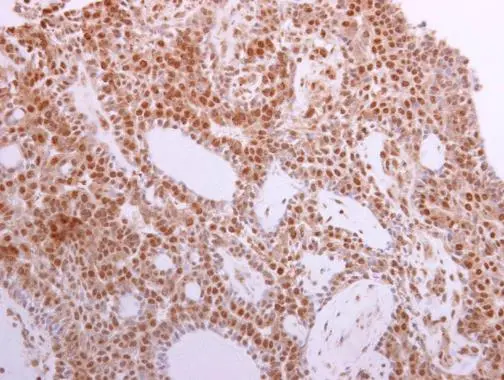
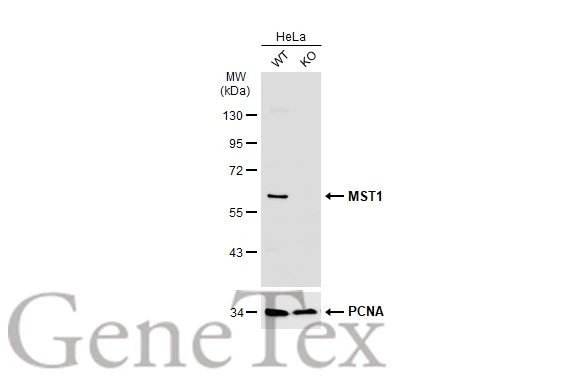
![STK4 antibody immunoprecipitates STK4 protein in IP experiments. IP samples: HepG2 whole cell extract A. 50 μg HepG2 whole cell extract B. Control with 4 μg of preimmune Rabbit IgG C. Immunoprecipitation of STK4 protein by 4 μg STK4 antibody (GTX109294) 7.5 % SDS-PAGE The immunoprecipitated STK4 protein was detected by STK4 antibody (GTX109294) diluted at 1:500. [EasyBlot anti-rabbit IgG (GTX221666-01) was used as a secondary reagent] STK4 antibody immunoprecipitates STK4 protein in IP experiments. IP samples: HepG2 whole cell extract A. 50 μg HepG2 whole cell extract B. Control with 4 μg of preimmune Rabbit IgG C. Immunoprecipitation of STK4 protein by 4 μg STK4 antibody (GTX109294) 7.5 % SDS-PAGE The immunoprecipitated STK4 protein was detected by STK4 antibody (GTX109294) diluted at 1:500. [EasyBlot anti-rabbit IgG (GTX221666-01) was used as a secondary reagent]](https://www.genetex.com/upload/website/prouct_img/normal/GTX109294/GTX109294_40009_IP_w_23060500_413.webp)
